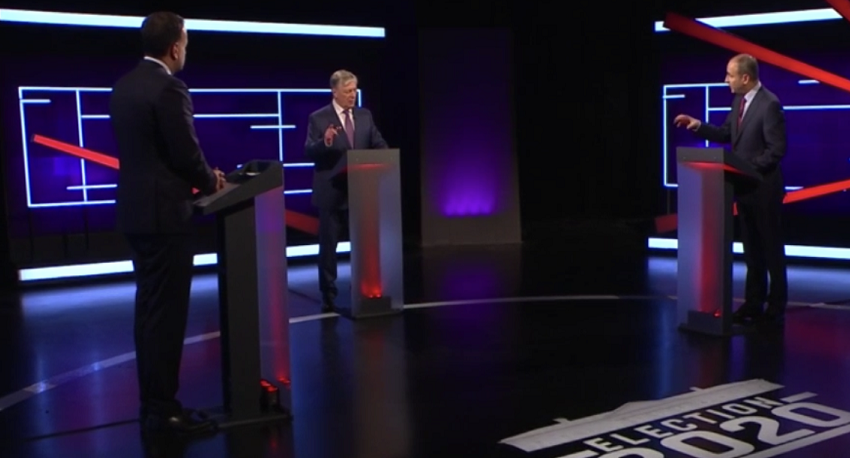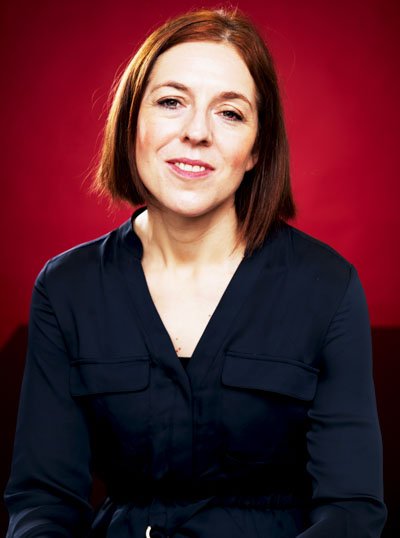Almost sixty years ago, on 26 September 1960, the nature of political campaigning changed forever.
It was the night of the first ever live televised US Presidential debate, between John F. Kennedy and Richard Nixon. It has gone down in history as the moment that voters could look their candidates in the eye for the first time, bringing a whole new dynamic to political campaigning.
First impressions count, and the ‘young’ (by the standards of the time) 43-year-old Kennedy looked the picture of health with a beaming smile, tan, and a sharp suit.
In contrast, Nixon looked pale and unconvincing. His suit was ill-fitting and his makeup was bad. Whereas Kennedy glowed, Nixon faded into the background. It didn’t bode well for the rest of his career.
Last night was the first of Ireland’s GE2020 leaders’ debates between incumbent Taoiseach and Fine Gael Leader Leo Varadkar and Fianna Fáil leader Micheál Martin.
With the 41-year-old Varadkar squaring up to the 59-year-old Martin, the contrast was in no way as stark as the one that separated Kennedy and Nixon, but in terms of messaging, approach, and tone, the differences were certainly more evident.
Empathy
From the outset, both leaders had opposing agendas and objectives for the debate.
It was clear that Varadkar wanted to knock on the head a couple of perceptions, fair or not, which have grown since the launch of the campaign.
Key among them is the accusation that he personally doesn’t “understand” or “get” real people and, worse still, that he lacks compassion. Unsurprisingly, then, Varadkar’s buzzword of the evening was “empathy”.
“I know they say it about me that I lack empathy,” he said. “But maybe I don’t put it into words properly that I care, but I do.”
It was the first of many similar such references where the Taoiseach strove to display a more “human” side, one with greater humility and emotion. The Taoiseach also uttered many expressions of regret on a variety of key issues, like people being treated on trolleys and the homeless.
The “humble and caring Varadkar” was a smart and necessary tactic to bring to his campaign, but it certainly didn’t mean an abandonment of the more “confident and assured Varadkar”.
He was still strong and forceful on many of the central issues. He said that his party had only really had two to three years of economic uplift to improve public services, but he committed to continuing the work if returned to power for another five years.
The old Fianna Fáil phrase of “a lot done, a lot more to do” hovered in the room even if it wasn’t explicitly stated.
In addition, Varadkar also frequently raised the Fianna Fáil boogeyman of “boom and bust” cycles, a not-so-subtle reminder to voters that just a decade ago the country was in economic meltdown.

Martin on the attack
Fianna Fáil leader Micheál Martin adopted a more aggressive strategy.
He concentrated on highlighting the broken or unfulfilled promises of the current Fine Gael-led government: a trolley crisis, homelessness, the housing failure, and new wave of violent crime. His criticisms were focused on the here and now rather than the past.
The message from Martin was clear: Fine Gael asking for a further chance from the electorate to right these wrongs is an ask too far.
He repeatedly made the point that “people want a change of government”, appealing to those wavering on giving Fine Gael that second chance. Martin knows, too, that this desire for change loomed large in a recent opinion poll.
But while he held his own throughout much of the debate and survived with his reputation and credibility more than intact, he failed to land any mortal blows on his opponent.
Illegal substances
Ironically, one of the biggest talking points of night was Varadkar’s prolonged pause in answering the question as to whether he had ever tried illegal drugs.
It wasn’t quite an Italia ’90 Bonner vs. Timofte “a nation holds its breath” moment, but it was still sufficiently anxiety-inducing to make a Twitter audience will the Taoiseach on to get the answer out.
(And if you’re wondering, yes, he has, but not since holding elected office!)
All-in-all, it was was a largely even and balanced first leaders’ debate with neither leader pulling noticeably ahead. In this writer’s view, Varadkar shaded the debate, but only just.
Last night might have given the public an edited, more concise version of the wider daily campaign messages, but it’s doubtful that it was persuasive enough to sway significant number of voters to support to one leader over another.
This political campaign remains close.

About the author
Amanda is Director of Policy and Campaigns at 360. She develops comms plans that are underpinned by strategic and policy considerations and achieve meaningful change. Her greatest strength is her ability to speed read, honed by many years of scanning newspapers for client coverage.
